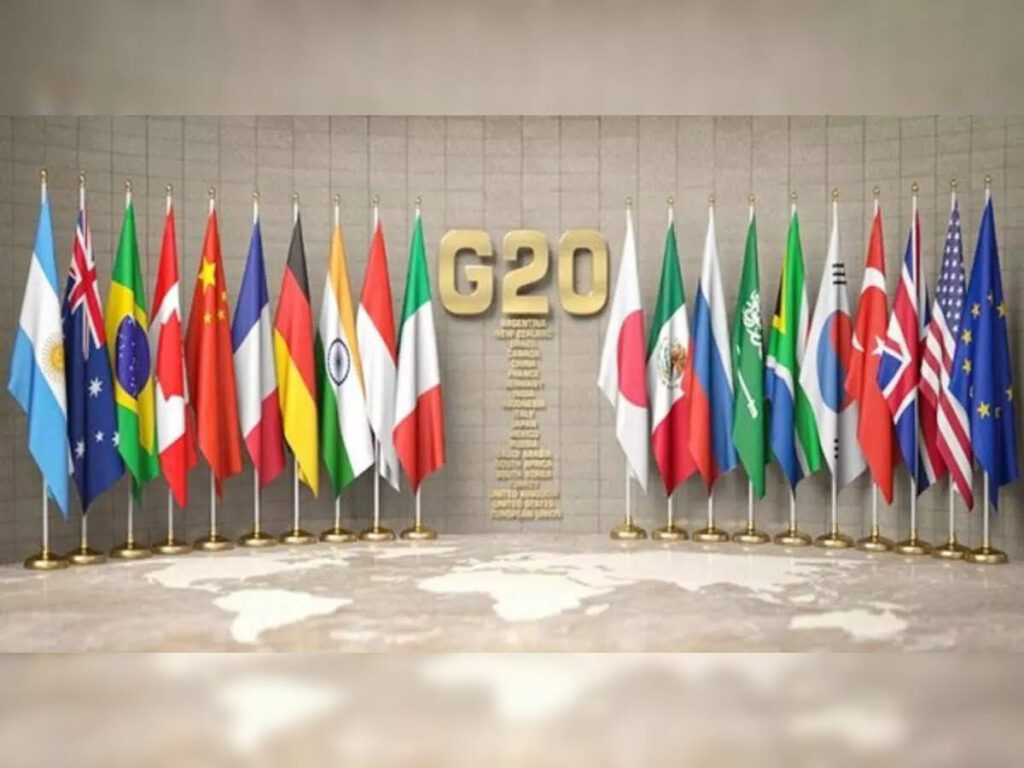By Dr. Gyan Pathak
G20 Presidency has called the Rio de Janeiro Declaration “historical” as the leaders committed to taxing billionaires, tackling inequalities, and support for climate action with focus on sustainable growth and fight against poverty, but it has taken limited concrete steps and focus was on long term goals rather than immediate actions.
Omitting “transitioning away from the fossil fuels”, focusing on the 2 degree Celsius target rather in 1.5 degree, and division among G20 countries about who should pay for funding the climate action are one of the glaring examples. They did not make much commitments though saying only that the trillions of dollars needed would come “from all sources.”
Another area of concern in respect of which G20 failed was taking concrete steps on stopping the devastating Ukraine War with further risks of escalations, though it called for “comprehensive” ceasefires in both Gaza and Lebanon. The summit was riven with divisions over Ukraine.
Nevertheless, the central commitments of the “historic” G20 Leaders’ Declaration were social inclusion, the fight against hunger and poverty, the taxation of billionaires, measures for the energy transition, the global governance reform, and the acceleration of climate action, while also supporting COP30 (United Nations Framework Convention on Climate Change) in 2025, which will be held in Belém, Brasil.
At the top of the agenda was Brazilian President LuizInacio Lula da Silva’s proposal for a Global Alliance against Poverty and Hunger backed by 82 countries that aimed to feed half a billion people by 2023. The summit statement included a pledge to “engage cooperatively to ensure that ultra-high-net-worth individuals are effectively taxed,” and to devise mechanisms to prevent them dodging tax authorities. On this anti-poverty group Oxfam has said, “Brazil has lit a path toward a more just and resilient world, challenging others to meet them at this critical juncture.” It is another matter that Lula’s progressive social agenda met some resistance during discussions but the declaration was finally signed by all.
The declaration achieved consensus among all member countries, and the group agreed to reinforce the commitment to addressing global challenges and promoting strong, sustainable, and inclusive growth, and also dedication to resolving crucial issues that shape the global future.
Importance of coordinated actions to combat climate change, promote just energy transitions, and preserving the environment was emphasized, though without any concrete steps in the right direction.
Global governance was in focus. G20 leaders stressed the need for its comprehensive reform, including strengthening the United Nations, modernising the international financial system, fostering an inclusive multilateral trading system, and promoting ethical development of Artificial Intelligence.
One of the important decisions of the G20 summit was to highlight the launch of the Global Alliance Against Hunger and Poverty, support for progressive taxation, and the commitment to appropriate taxation of billionaires. However, the proposals of progressive taxation of the super-rich and democratised governance are believed too ambitious given the current global political divide.
It made a history by committing for the first time to mobilise resources for basic sanitation and access to drinking water, as well as addressing racism and promoting racial equality as part of the effort to combat inequalities. G20 countries would, however, need follow-up actions to match the commitments.
While not committing for enough funding for climate actions, they did underscore the importance of increasing both public and private green funding, and argued for reforming the international financial architecture essential for supporting climate action. The group merely demonstrated support for a New Quantified Collective Objective for Climate Financing (NCQG). The declaration called for investments to aid developing countries and reaffirmed the commitment to phasing out inefficient fossil fuel subsidies alongside to accelerate fair, clean and sustainable energy transitions.
The inclusion of the African Union as a permanent member of the G20 has expanded the forum’s diversity. It would help in ensuring integration of African perspectives into global decision-making.
The declaration has laid down outlines of ambitious frameworks but with little tangible outcomes. The immediate actions, such as on substantial climate finance commitments and concrete debt relief measures, were required, but it focused on long-term goal and procedural reforms.
Geopolitical tensions, such as Russia-Ukraine war and conflicts in the Middle East, had actually divide the group which prevented a more unified approach to global security and collaborations. Even though the summit declaration called for reforms of IMF, World Bank and the UN Security Council, it lacked a clear implementable blueprint for implementation. It lacked strong commitments, and hence there is every possibility that reforms will either move very slowly or stalled.
The G20 Brazil Summit, though succeeded in fostering dialogue on critical global issues and setting ambitious frameworks for action, it faced criticism for its lack of immediate and binding commitments, particularly in areas such as climate finance, governance reform, and global economic inequality. As such, while the summit laid the groundwork for future collaboration, its success will ultimately depend on follow-ups in the coming years. (IPA Service)

 1,000 Days Later, Where Is Russia-Ukraine War Heading?
1,000 Days Later, Where Is Russia-Ukraine War Heading? 